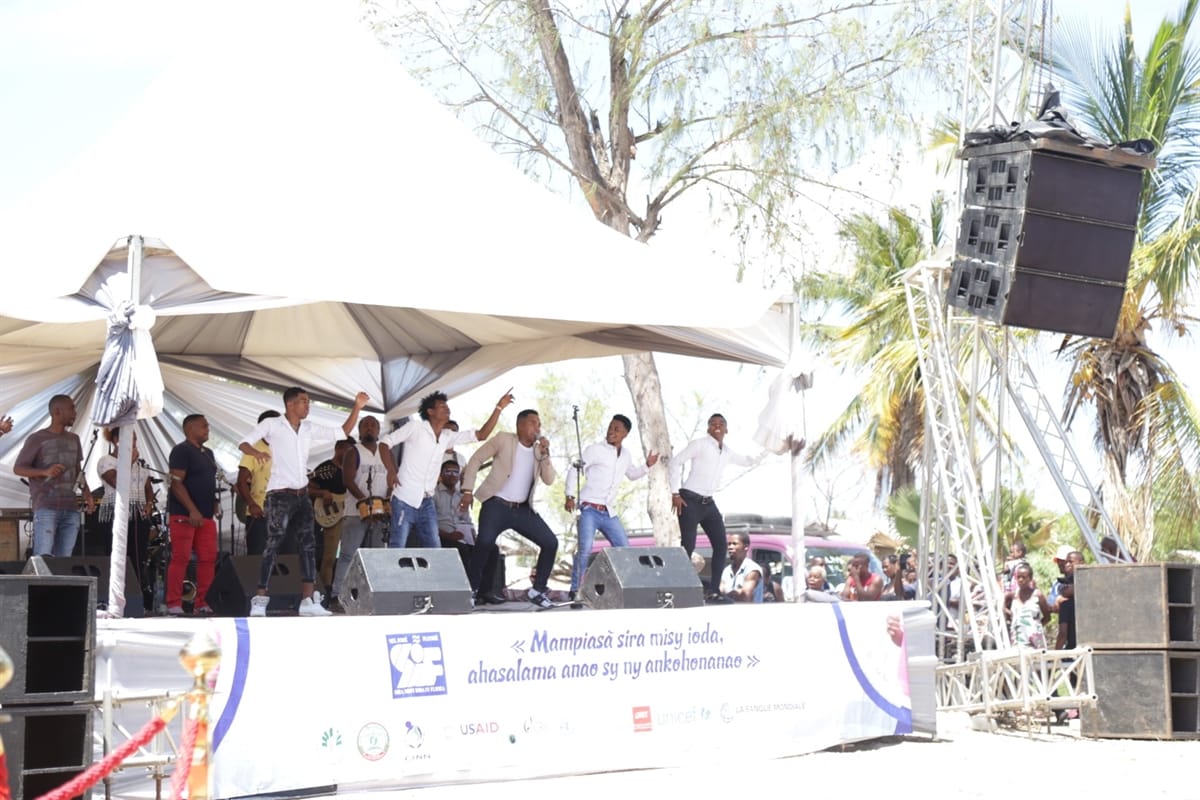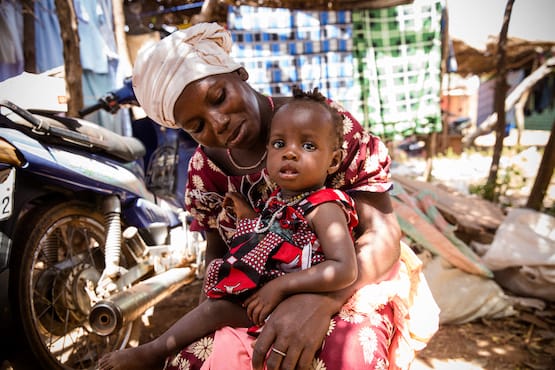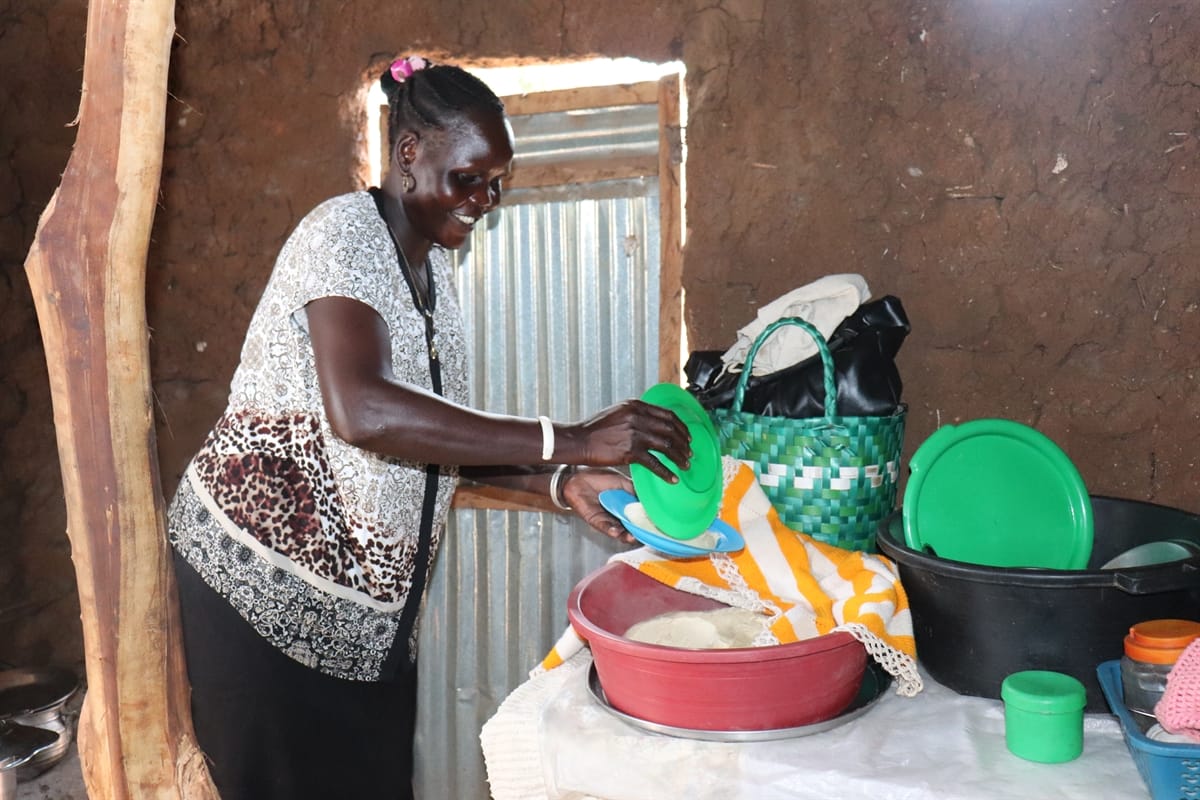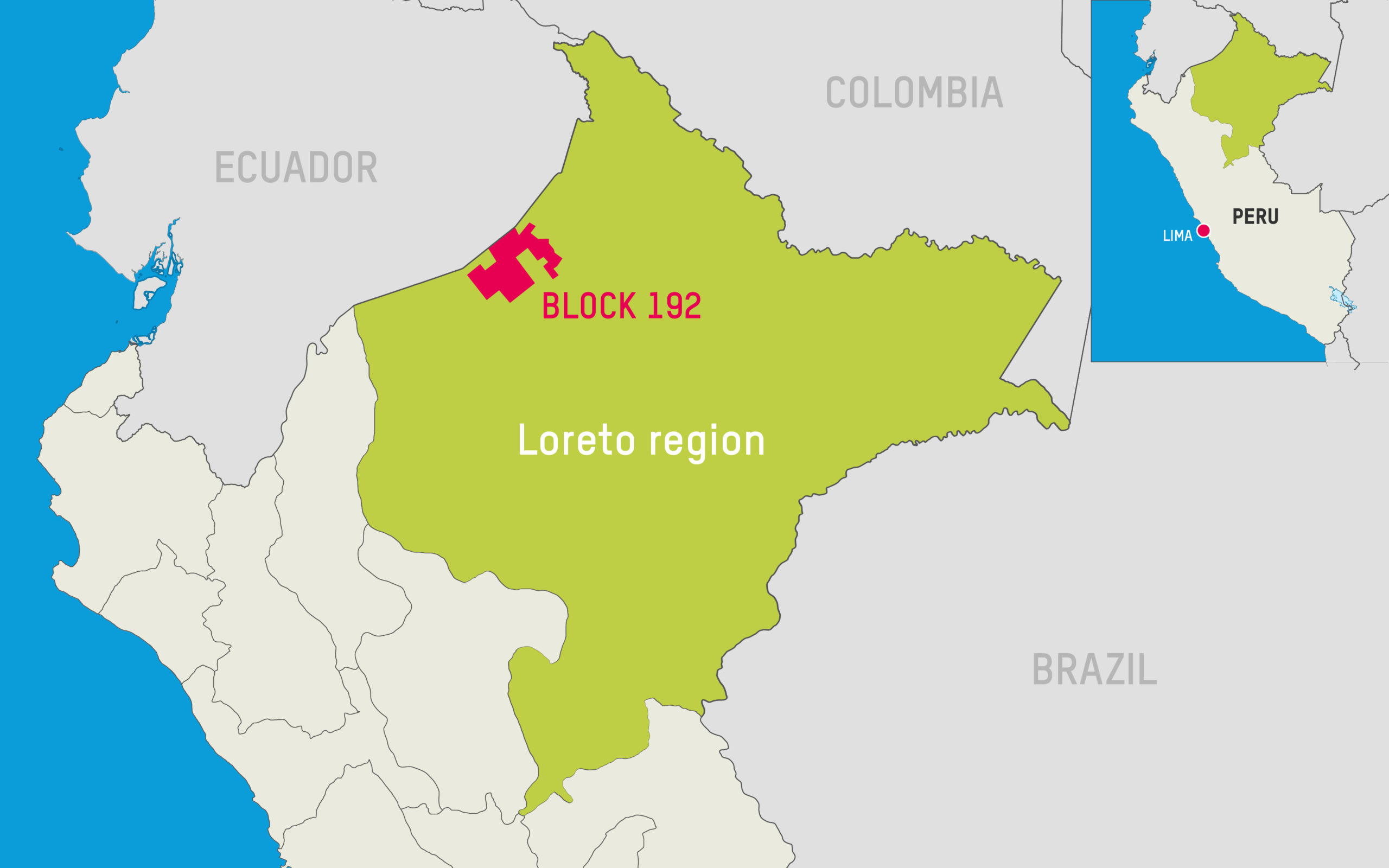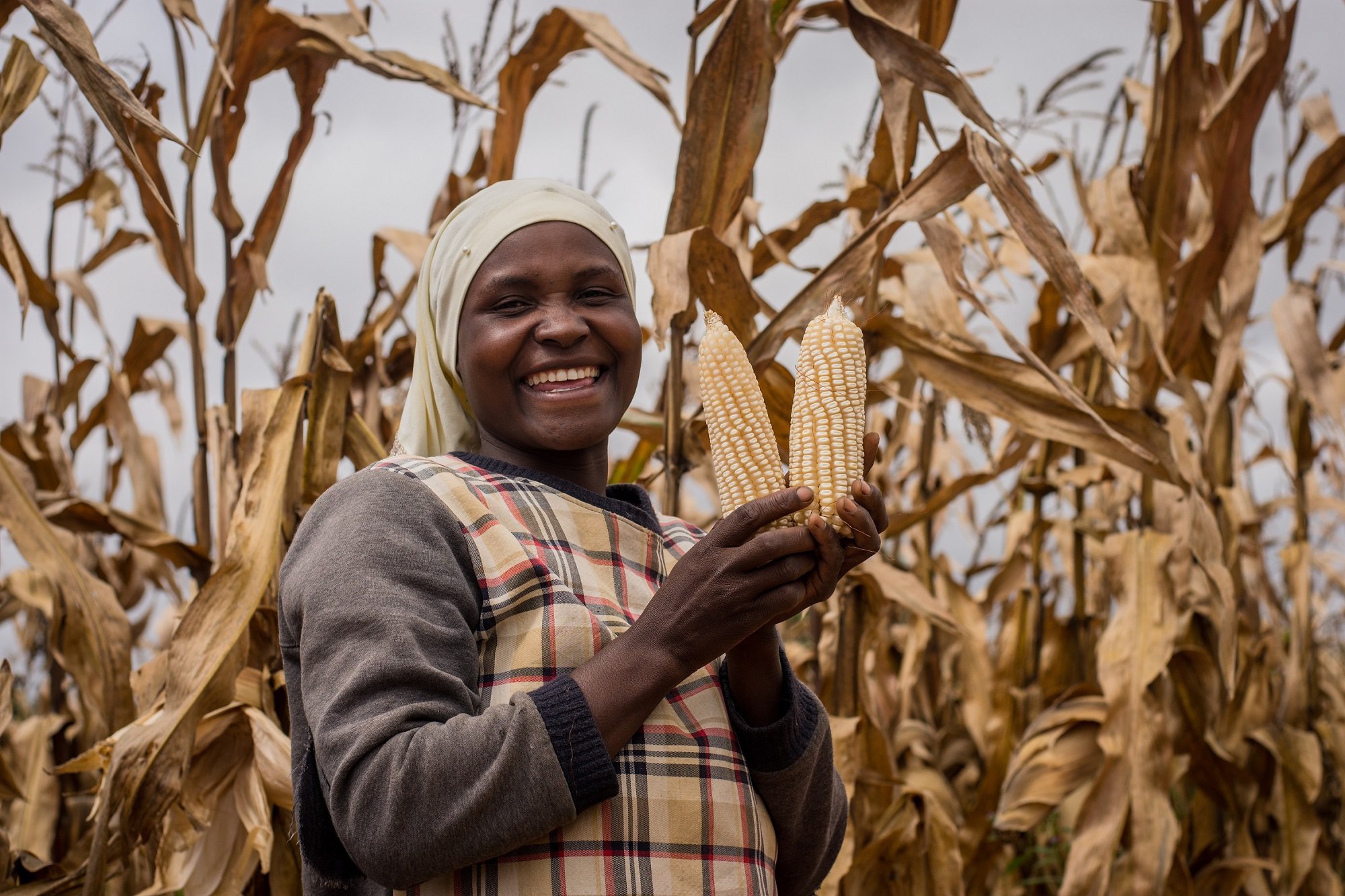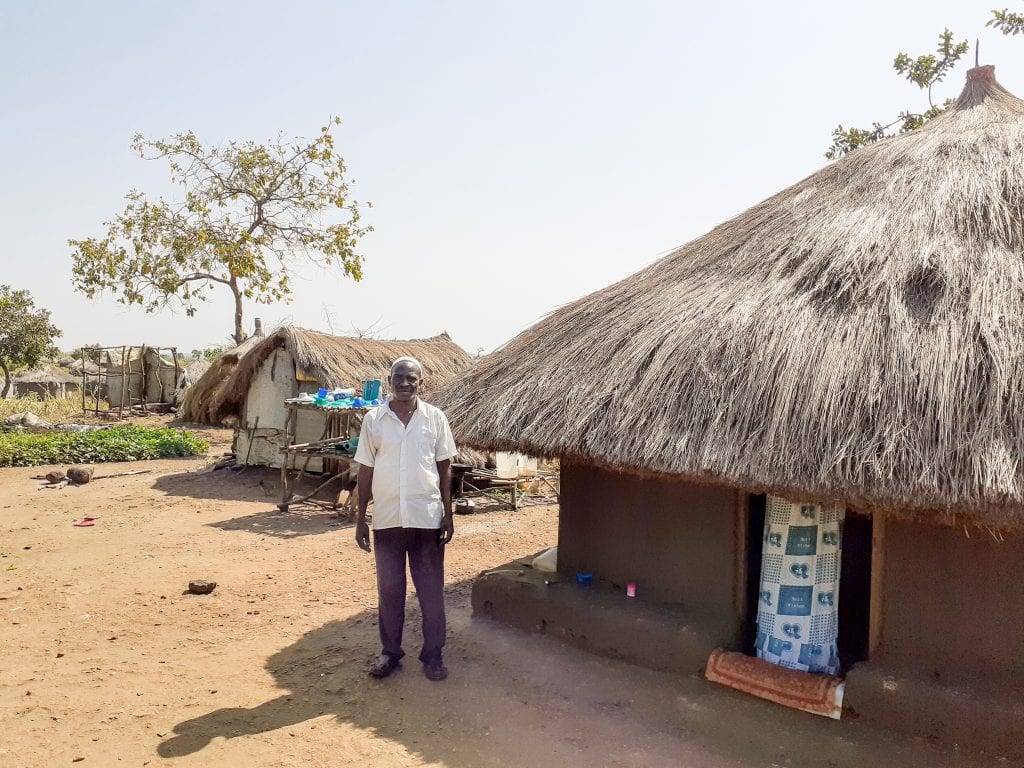This article is co-authored by:
- Marie-Claude Désilets, head of nutrition at UNICEF in Madagascar
- Minoru Irie, a Senior Consultant with the Foundation for Growth Science, Professor Emeritus of Toho University, and National Coordinator of Japan for the Iodine Global Network
- Dr. Festo Kavishe, former Managing Director of the Tanzania Food and Nutrition Centre, Deputy Regional Director of UNICEF in East Asia & Pacific, UNICEF Representative in Zimbabwe and Eritrea and the Iodine Global Network Regional Coordinator for Eastern & Southern Africa
- Dr. Isiye Ndombi, former Lecturer in Child Health at the University of Nairobi, UNICEF Deputy Regional Director in East Asia and Pacific and an IGN Consultant for Eastern and Southern Africa
The authors explain how through strategic partnership, newborns from Madagascar can be protected from preventable brain damage due to iodine deficiency.
In Morondava, Madagascar, on February 14th 2019, stakeholders and members of the public gathered to the live soundtrack of the local Leahaly band to celebrate a shipment that will prevent brain damage in thousands of babies in the country this year and beyond.
In the delivered shipment was potassium iodate, 850 kg of it – enough to provide adequately iodized salt to around 80% of the national population, beginning this year.
Iodine nutrition has been a serious public health problem in Madagascar, with political will inconsistent over the past decades, and levels alarmingly low according to the last national survey in 2016, leaving babies at risk of being born with mental impairment.
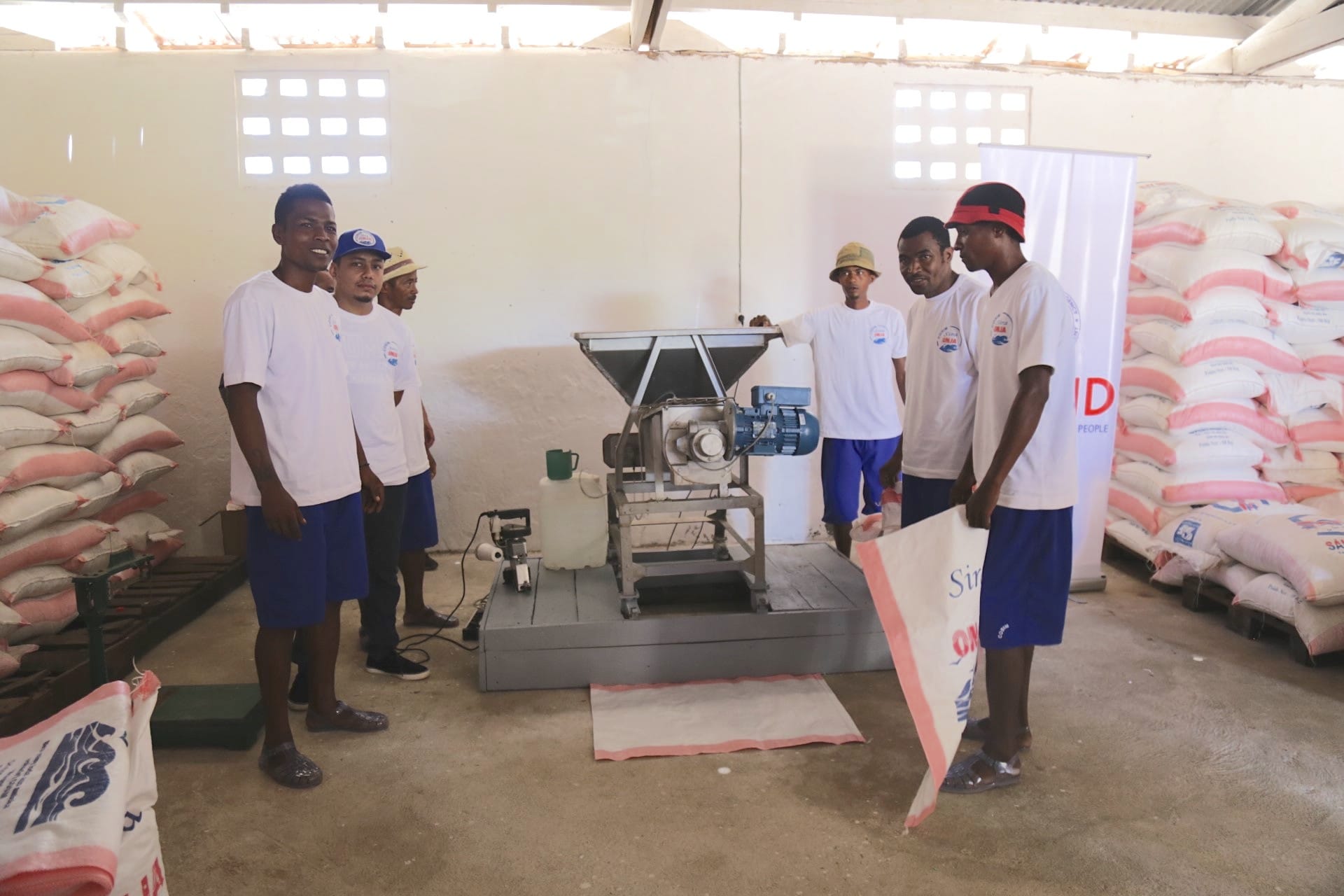
Workers at Salt Factory in Morondava, Madagascar
Now, Madagascar is seeing a sea change – a renewed commitment toward salt iodization. The intervention, a simple and proven solution to iodine malnutrition, was named a key action of the national nutrition plan through 2021. Among the changes to take place is an increased capacity for regulatory monitoring and enforcement, two keystones of successful salt iodization programs.
For Madagascar’s salt producers, this is good news. As part of the deal, they’ll receive iodization and quality control equipment. It will also be used to help establish a revolving fund so that the fortificant, potassium iodate, can ultimately be provided sustainably.
In the meantime, the interim progress is the result of a new partnership between our organizations and other key partners, including: The Japanese Foundation for Growth Science & Japan Iodine Industries Association (JIIA), Chiba Prefecture, the Madagascar national Government, regional government of Morondava, UNICEF, USAID, IGN, and salt producers. It truly takes a village to get these programs off the ground, and we have been delighted to witness the progress.
In the Chiba Prefecture, the partnership kicked off on the last Monday of October 2018 with a donation ceremony. Since then we successfully came together to broker our respective resources and areas of expertise to the task of addressing iodine deficiency in Madagascar.
We even collaborated on the lyrics to a song that the Leahaly wrote for the occasion. Here are the words to one of the verses. Listen to the entire song in Malagasy, here:
| Malagasy | English |
|
Tadidio ry vehivavy bevohoka, Mampivelatra ny sain’ny zaza ao am-bohoka, Misoroka ny fahafahan-jaza, ho anao koa , Ny fihinana sira misy ioda isan’andro |
Remember, pregnant women, Developing baby’s mind in the womb, Preventing spontaneous abortion, for you, the daily use of iodized salt |
Quality monitoring and iodization capacity. As we celebrate this initial success, we’re already looking ahead to what it will take to strengthen and sustain this critical national nutrition intervention. Together we’ll be working towards:
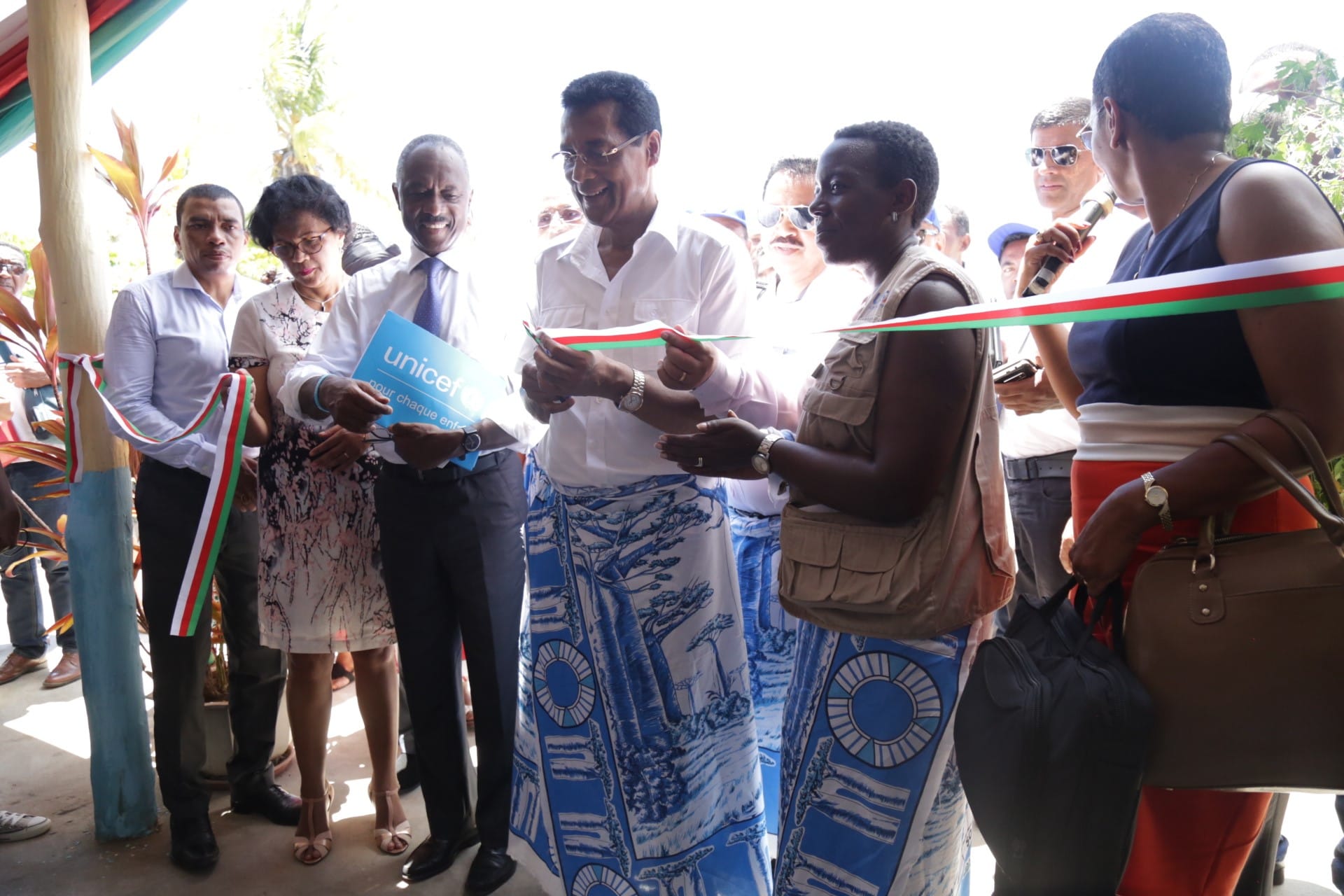
IGN Inauguration of Comptoir du Sel Iodé du Menabe (COSIM) with the Principal Advisor to the Prime Minister; Representative of USAID; UNICEF Representative and National and Regional Representatives from Ministry of Health.
-
Behavior change to improve the sales of iodized salt
-
Better coverage of this critical intervention so it can reach all people of Madagascar
-
Stronger public-private partnership with the salt industry
While it’s a well-recognized challenge of international, public-private partnership to engage such diverse stakeholders, the results, in this case, could mean life-changing health impacts for an entire country. We pledge to continue to work together to protect newborns in Madagascar from preventable mental impairment, and ensure the next generation can thrive.
Read more about our work in Madagascar in the February 2019 article of the IGN IDD Newsletter: http://www.ign.org/idd-newsletter-1-2019.htm
Read more about the new partnership in the news:
https://actu.orange.mg/la-region-menabe-apporte-son-grain-de-sel-aux-menages/
https://www.lexpressmada.com/15/02/2019/menabe-les-saliniers-beneficient-dappui-technique/
You can read more about IGN here and support their work here.
